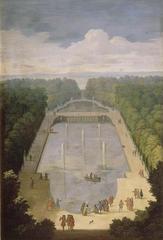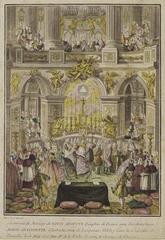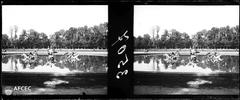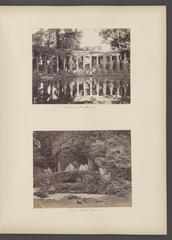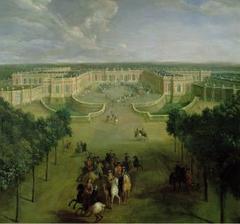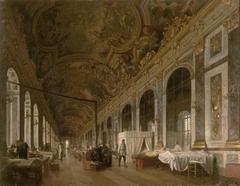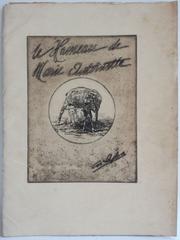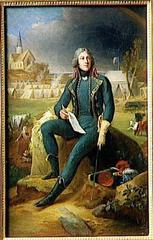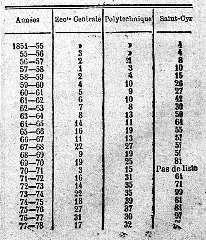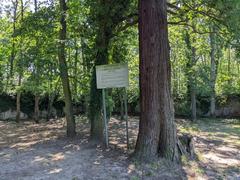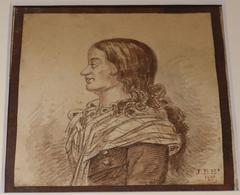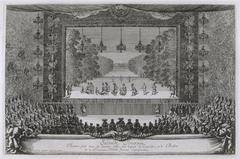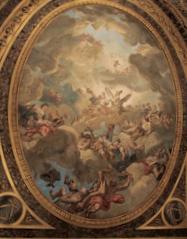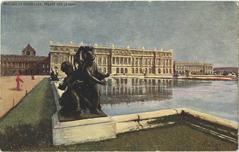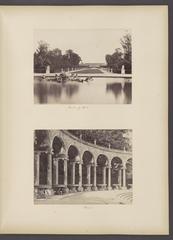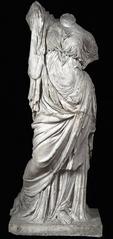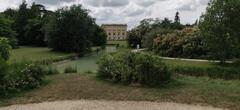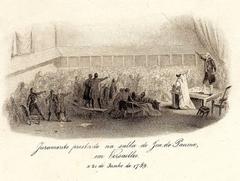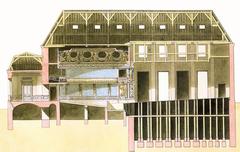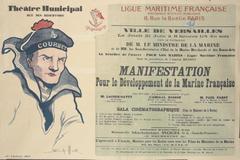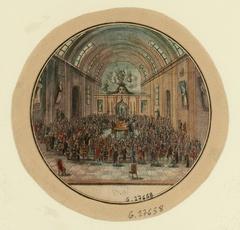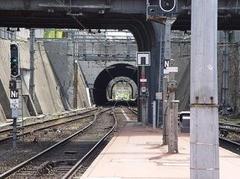
Grand Appartement de la Reine Versailles: Visiting Hours, Tickets, and Historical Sites Guide
Date: 04/07/2025
Introduction
The Grand Appartement de la Reine at the Palace of Versailles stands as a testament to the opulence, artistry, and political significance of French royal life. Originally conceived in the 1670s as a ceremonial suite for the queen, this series of rooms has been shaped by the tastes and personalities of iconic figures such as Maria Theresa of Spain, Marie Leszczyńska, and, most famously, Marie Antoinette. Today, the Grand Appartement de la Reine offers visitors an immersive journey into the ceremonial, artistic, and everyday worlds of France’s queens, reflecting the grandeur of the Ancien Régime and the dramatic events that led to its transformation (Château de Versailles, Petit Futé, PlanetWare).
This comprehensive guide explores the history, architecture, artistic highlights, and practical visitor information for the Grand Appartement de la Reine. Whether you are a history enthusiast, art lover, or planning your first visit to Versailles, you’ll find detailed insights and essential tips to make your experience truly memorable.
Table of Contents
- Introduction
- Origins and Architectural Evolution
- Ceremonial Functions and Daily Life
- Artistic and Decorative Transformations
- Historical Moments and Symbolism
- Layout and Key Rooms
- Visiting Information: Hours, Tickets, Accessibility
- Travel Tips and Visitor Experience
- Special Events and Guided Tours
- Photographic Highlights
- Nearby Attractions
- FAQ
- Conclusion & Recommendations
- References
Origins and Architectural Evolution
The Grand Appartement de la Reine was conceived during Louis XIV’s ambitious expansion of Versailles in the 1670s. Designed by Louis Le Vau and later refined by Jules Hardouin-Mansart, the apartment was intended to mirror the King’s State Apartments, symbolizing the duality and ceremonial balance of the royal couple (Château de Versailles, Wikipedia). Originally, the apartment consisted of seven interconnected rooms, each aligned to reflect the Baroque ideals of symmetry, theatricality, and grandeur.
Over the following century, successive queens, notably Marie Leszczyńska and Marie Antoinette, introduced modifications reflecting changing tastes and court customs. Marie Antoinette’s period saw the most significant transformation, with lighter Rococo and Neoclassical influences replacing the earlier, heavier Baroque decor (Point de Vue).
Ceremonial Functions and Daily Life
Far more than a private residence, the Grand Appartement de la Reine was a stage for the rituals and ceremonies that defined the French monarchy. Daily activities, such as the queen’s “lever” and “coucher” (rising and retiring) ceremonies, were highly public events attended by courtiers and visiting dignitaries. The queen’s public meals, receptions, and audiences took place in these rooms, reinforcing her status and the hierarchical order of the court (Château de Versailles).
Notable rooms included:
- Chambre de la Reine (Queen’s Bedchamber): The site of both intimate moments and public rituals, including the birth of royal children before witnesses to ensure dynastic legitimacy.
- Salon des Nobles: Used for formal audiences and gatherings, updated by Marie Antoinette with Rococo paneling and green damask.
- Antichambre du Grand Couvert: Where the queen dined publicly, often accompanied by music and observed by the court and public alike.
- Salle des Gardes: The first room encountered, guarded by Swiss Guards and featuring a newly restored 17th-century ceiling (Château de Versailles).
Artistic and Decorative Transformations
The Grand Appartement de la Reine’s interiors showcase the evolution from Baroque splendor to Rococo elegance and Neoclassical refinement. Marie Leszczyńska and Marie Antoinette were key patrons of the decorative arts, commissioning leading artisans for bespoke furnishings and tapestries (Wikipedia).
- Furniture: Masterpieces by cabinetmakers Jean-Henri Riesener and Georges Jacob, including the queen’s bed and commodes.
- Textiles: Sumptuous draperies and wall hangings from the Gobelins and Beauvais manufactories.
- Ceilings and Paintings: Allegorical ceiling paintings by artists such as François Boucher and Jean-Baptiste Jouvenet, celebrating virtues associated with queenship.
Recent restorations have revealed original paintwork, trompe-l’oeil effects, and symbolic monograms, allowing visitors to appreciate the rooms as they appeared in the late 18th century (Point de Vue).
Historical Moments and Symbolism
The Grand Appartement de la Reine was witness to some of the most dramatic events in French history. On October 6, 1789, as the French Revolution erupted, Marie Antoinette escaped from her bedchamber through a hidden door, narrowly evading a revolutionary mob (Point de Vue, travelertopia.com). This event symbolized the downfall of the Ancien Régime and the end of royal residence at Versailles.
The apartment’s layout and decoration also reflect the queen’s role as both a public figure and a private individual, balancing ceremony with personal retreat. Personal symbols, allegories of virtue, and political iconography permeate the decor, reinforcing the queen’s identity and influence (arsartisticadventureofmankind.wordpress.com).
Layout and Key Rooms
The Grand Appartement de la Reine consists of several main rooms:
- Chambre de la Reine (Queen’s Bedchamber): The ceremonial heart, with embroidered silk, gilded woodwork, and a hidden escape door famously used by Marie Antoinette.
- Salon des Nobles: Formal reception hall, notable for its mirrors and gilded paneling.
- Antichambre: Used for daily meals and as a waiting area for courtiers; decorated with tapestries and a monumental fireplace.
- Salle des Gardes: Entrance room guarded by Swiss Guards, featuring martial décor and grand marble elements.
- Cabinet de la Reine: A private room for personal affairs and smaller audiences.
Each space is designed to impress, with ceilings painted by renowned artists and walls adorned with precious materials (Château de Versailles).
Visiting Information: Hours, Tickets, Accessibility
Visiting Hours
The Grand Appartement de la Reine is generally open Tuesday to Sunday from 9:00 AM to 6:30 PM, with last entry at 6:00 PM. The palace is closed on Mondays and certain holidays. Always consult the official website for up-to-date opening hours.
Tickets
- Standard Palace Ticket: €18–€19.50, includes entry to the Grand Appartement de la Reine.
- Passport Ticket: €20, access to the entire estate (including gardens and Trianon palaces).
- Discounts: Available for EU residents under 26, children, and other eligible groups.
- Free Admission: For children under 18, EU residents under 26, and specific categories (advance reservation still required).
- Audioguide: €5 (palace only) or €8 (palace + Trianon).
Tickets can be purchased online to avoid queues (Petit Futé).
Accessibility
The palace provides ramps, elevators, and assistance for visitors with reduced mobility. Please check the official accessibility page or contact visitor services ahead of your visit for the latest information.
Travel Tips and Visitor Experience
- Best Time to Visit: Arrive early (at opening) or late in the day to avoid peak crowds, especially during weekends and holidays.
- Duration: Allocate 1.5–2 hours for the main château, including the Grand Appartement de la Reine; more time if you plan to visit the gardens and Trianon.
- Comfort: Wear comfortable shoes—there’s extensive walking.
- Photography: Non-flash photography is permitted; tripods and selfie sticks are not.
- Belongings: Large bags must be checked at the cloakroom.
Special Events and Guided Tours
Versailles offers a range of guided tours focusing on the Grand Appartement de la Reine and related spaces. These tours often provide access to private rooms not open to the general public and enrich your understanding of the site. Special exhibitions and seasonal events are also held; check the events calendar for details.
Photographic Highlights
Top spots include the Queen’s Bedchamber (iconic bed and silk hangings), the Salon des Nobles’ gilded decor, and the dramatic ceilings throughout the apartment. Remember: photography is allowed without flash, but respect all posted restrictions.
Nearby Attractions
Don’t miss other Versailles highlights, including:
- The Hall of Mirrors (Galerie des Glaces)
- The King’s State Apartments
- The Royal Chapel
- The extensive gardens designed by André Le Nôtre
- The Petit and Grand Trianon palaces
Versailles is a short RER C train ride from Paris (stop: Versailles Château Rive Gauche), making day trips easy.
Frequently Asked Questions (FAQ)
Q: Are guided tours available for the Grand Appartement de la Reine?
A: Yes, guided tours and audioguides are available and highly recommended for deeper insights.
Q: Are there separate tickets for the Grand Appartement de la Reine?
A: No, entry is included with standard palace admission.
Q: Is the apartment accessible to visitors with reduced mobility?
A: Yes, with ramps and elevators available—contact ahead for assistance.
Q: Can I take photographs inside?
A: Yes, non-flash photography is permitted; tripods and selfie sticks are not.
Q: What are the best times to visit?
A: Early morning or late afternoon on weekdays is best to avoid peak crowds.
Conclusion & Recommendations
The Grand Appartement de la Reine remains an extraordinary testament to France’s royal heritage, artistry, and history. From its Baroque origins through Marie Antoinette’s Rococo refinements, the apartment encapsulates the evolving roles, tastes, and ceremonial functions of the queens who shaped Versailles. Its rooms bear witness to key moments in French history, making a visit here both an aesthetic and educational experience.
Carefully restored and thoughtfully interpreted, the Grand Appartement de la Reine is essential for any Versailles itinerary. Plan ahead, use official resources, and consider guided tours or the Audiala app to maximize your visit. Don’t forget to explore the palace’s other treasures, including the Hall of Mirrors and the Trianon estates.
References
- Grand Appartement de la Reine at Versailles: History, Visiting Hours, Tickets, and Visitor Guide (Château de Versailles)
- Visiting the Grand Appartement de la Reine at Versailles: Hours, Tickets, and Highlights (Château de Versailles)
- Grand Appartement de la Reine at Versailles: Visiting Hours, Tickets, History, and Insider Tips (PlanetWare)
- Visiting the Grand Appartement de la Reine: Hours, Tickets, and Insider Tips at Château de Versailles (Petit Futé)
- The Grand Appartement de la Reine - Marie Antoinette’s Apartment at Versailles (Point de Vue)
- Additional reference: arsartisticadventureofmankind.wordpress.com, travelertopia.com, francetraveltips.com
Call to Action:
Download the Audiala app for expert audio guides and up-to-date visitor information on Versailles and other French heritage sites. Follow us on social media for more tips and exclusive content.
Visuals:
Include high-resolution images with captions such as “Grand Appartement de la Reine at Versailles – Queen’s Bedchamber,” “Gilded woodwork in the Queen’s Antechamber,” and “Ceiling paintings in Versailles Queen’s Apartment.” Consider embedding an interactive map or virtual tour if available.
Explore more:



